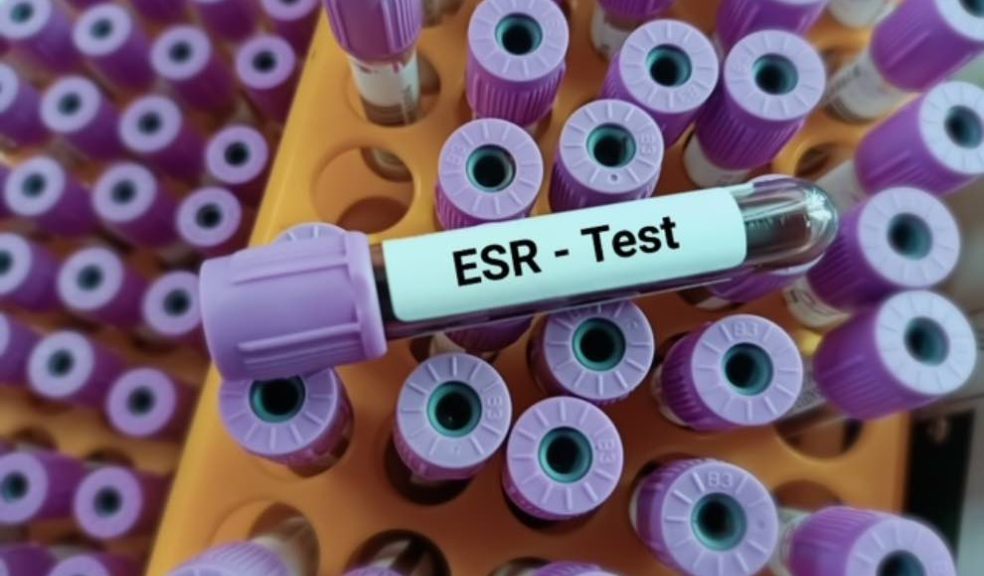
Is it Time for an ESR Test? Key Signs and Benefits
The Erythrocyte Sedimentation Rate (ESR) test is a blood test that helps detect inflammation in the body, which can be indicative of various medical conditions. Understanding when to take an ESR test is crucial for accurate diagnosis and effective treatment of conditions such as giant cell arteritis, rheumatoid arthritis, and infections. Recognizing the symptoms that warrant an ESR test ensures timely medical intervention, helping manage and mitigate potential health issues efficiently. This article will guide you through the importance of ESR testing and the convenience of getting tested through platforms like GetLabTest.com.
What is an ESR Test?
The Erythrocyte Sedimentation Rate (ESR) test is a simple blood test that measures the rate at which red blood cells settle at the bottom of a test tube over one hour. The test works by drawing a blood sample and placing it in a tall, thin tube. Red blood cells normally settle slowly, but faster settling can indicate inflammation.
The ESR test measures the degree of inflammation in the body, which can be a symptom of various conditions, including infections, autoimmune diseases, and cancers. Higher-than-normal ESR levels suggest the presence of an inflammatory process, making it a valuable diagnostic tool. Although the ESR test is not specific to any one disease, it helps guide further diagnostic investigations and monitor the progress of conditions or the effectiveness of treatments. Understanding ESR levels can aid in diagnosing health issues and formulating appropriate treatment plans. This non-specific but crucial test is integral in assessing and managing patients with unexplained symptoms, ensuring timely and accurate medical intervention.
Conditions Diagnosed with ESR Test
The ESR (Erythrocyte Sedimentation Rate) test is a versatile diagnostic tool used to detect inflammation associated with various medical conditions. Here are some key conditions that can be diagnosed or monitored using the ESR test:
- Giant Cell Arteritis: This condition involves inflammation of the blood vessels, particularly in the head, and can cause severe headaches, jaw pain, and vision problems. Elevated ESR levels are a common indicator of giant cell arteritis, helping in its timely diagnosis and management.
- Polymyalgia Rheumatica: Often associated with giant cell arteritis, polymyalgia rheumatica causes muscle pain and stiffness, especially in the shoulders and hips. The ESR test helps in diagnosing this inflammatory condition and monitoring treatment efficacy.
- Rheumatoid Arthritis: An autoimmune disorder characterized by chronic inflammation of the joints, rheumatoid arthritis leads to pain, swelling, and potential joint deformity. High ESR levels can indicate active disease and guide treatment adjustments.
- Systemic Lupus Erythematosus (SLE): SLE is an autoimmune disease affecting multiple organs, causing symptoms like fatigue, joint pain, and skin rashes. The ESR test helps in assessing the degree of inflammation and monitoring the disease’s progression.
- Infections: Bacterial, viral, and other infections often elevate ESR levels due to the body's inflammatory response. This makes the ESR test useful in diagnosing and managing various infectious diseases.
- Kidney Diseases: Certain kidney conditions, such as chronic kidney disease, can cause inflammation, which is reflected in elevated ESR levels. Monitoring ESR helps in assessing the severity and progression of these diseases.
- Certain Cancers: Some cancers, particularly those affecting the blood and lymphatic systems, can elevate ESR levels. This test assists in detecting and monitoring the inflammatory response associated with malignancies.
By identifying elevated ESR levels, healthcare providers can further investigate these conditions and implement appropriate treatment strategies, improving patient outcomes.
When Should You Consider an ESR Test?
The ESR (Erythrocyte Sedimentation Rate) test can be crucial in diagnosing and monitoring various health conditions. Here are some symptoms and situations that might prompt an ESR test:
Symptoms That Might Prompt an ESR Test:
- Persistent Headaches: Chronic headaches, especially those resistant to typical treatments, might indicate underlying inflammatory conditions like giant cell arteritis.
- Unexplained Muscle Pain and Stiffness: Conditions like polymyalgia rheumatica cause muscle pain and stiffness, which can be detected through elevated ESR levels.
- Chronic Fatigue and Weakness: Persistent fatigue can be a sign of systemic inflammation or autoimmune diseases.
- Persistent Fever: Unexplained fevers often suggest infection or inflammation, warranting an ESR test.
- Unexplained Weight Loss: Significant weight loss without a clear cause can indicate underlying chronic inflammation or malignancies.
Situations and Conditions Warranting an ESR Test:
- Monitoring Existing Inflammatory Conditions: Regular ESR tests help track the progress of known inflammatory diseases like rheumatoid arthritis or lupus, aiding in adjusting treatments.
- Diagnosing New Onset of Symptoms with No Clear Cause: When patients present with nonspecific symptoms such as those listed above, an ESR test helps identify potential inflammatory or autoimmune conditions.
- Evaluating Response to Treatment: For patients undergoing treatment for inflammatory diseases, repeated ESR tests assess the effectiveness of the therapy and guide necessary adjustments.
Considering these factors, an ESR test provides valuable insights into the body’s inflammatory status, helping healthcare providers diagnose, monitor, and manage various conditions effectively. For convenient and accurate ESR testing, platforms like GetLabTest.com offer a user-friendly option for obtaining necessary blood tests.
Interpreting ESR Test Results
Elevated ESR levels indicate inflammation, suggesting conditions such as infections, autoimmune diseases, or cancers. Lower ESR levels are generally normal, indicating no significant inflammation.
At GetLabTest.com, AI mechanisms analyze ESR test results, providing precise interpretations by comparing them with extensive medical data. This helps identify potential health issues quickly and accurately.
While AI provides initial insights, consulting healthcare providers is crucial for a comprehensive diagnosis. They interpret ESR results in the context of your overall health, symptoms, and medical history, ensuring accurate diagnosis and appropriate treatment.
How to Get an ESR Test
Steps to Get an ESR Test Through GetLabTest.com:
- Visit GetLabTest.com: Go to the website and navigate to the ESR test page.
- Order the Test Online: Select the ESR test and add it to your cart. Complete the purchase using the secure online payment system.
- Schedule an Appointment: Choose a convenient time and location for your blood draw.
- Take the Test: Visit the designated lab for your arterial blood sample collection.
- Receive Results: Access your test results online through your secure account.
GetLabTest.com offers a seamless online ordering process, allowing you to schedule and pay for tests without leaving home. This convenience is ideal for busy individuals or those with mobility issues.
- Benefits of Using GetLabTest.com for ESR Testing:
- Accuracy: Arterial blood samples provide precise results.
- Speed: Quick turnaround times for results.
- Ease of Access: Online platform makes it easy to order and view results.
- AI Interpretation: Advanced AI mechanisms aid in result interpretation, enhancing accuracy.
- Support: Professional consultation available to discuss results and next steps.













